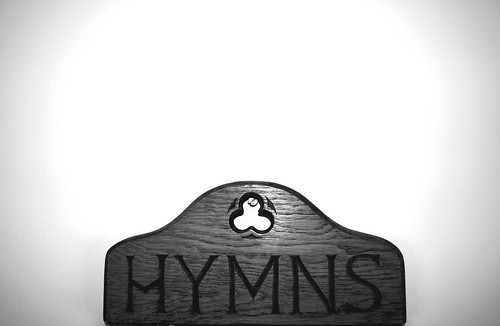We recently visited one of the congregations in our Association during a quick weekend trip to Minneapolis, MN. During the worship service we were introduced to songwriter and worship leader Brenton Brown’s new ?”Joyful (The One Who Saves)”? which incorporates the beginning words from the hymn “Joyful, Joyful, We Adore Thee” and melody from the Beethoven’s ?Ode to Joy? from the his 9th Symphony.
I had heard a preview of the worship song when Brenton gave us the opportunity to listen online when the album was released and enjoyed it. I liked it even more in a congregational setting.
Don’t Mess with the Hymns
However, my bride had a different opinion. I asked what she thought about it and she said, in a nutshell, ?”Don’t mess with the hymns. You can add a chorus to them, update the arrangement, but don’t mess with the melody.”?
What she was referring to is that some of the words in Brenton’s version are changed from part B of the melody to match part A and it threw her off. She also said ?”There are so many more good words in that hymn, why did it just repeat the first part? Why are we afraid to say more instead of repeating what was already said??” While the debate about repeating verses and choruses has been around for a long time, her point is that even some modern worship music still doesn’t “dig deeper” as much as it could.
Traditional Hymns Win
I also posted a mini-survey on I am an Offering’s Facebook page asking what people preferred out of traditional hymns, modern hymns, updated hymns and contemporary worship music. While this was by no means a conclusive survey I did find it interesting that the majority of the people answering chose traditional hymns.
Question:
I would love to know your thoughts. Please do not attack Brenton’s song itself, as that’s not my intention and I believe Brenton had a fantastic heart behind putting these lyrics and original melody into a modern setting. I want to know what you think about ?”messing” with hymns? in general.
I understand that many hymns were originally set to multiple tunes and have even changed tunes over time, but when certain melodies have passed through centuries without being changed what is the benefit of changing them? Does it create freshness or frustration? Is it our lack of a worshipful heart that’s frustrated or is the vehicle of change frustrating our mode of remembrance?
Would you discuss?







